
A 50-minute continuous electronic composition created for choreographer Daniel Linehan's dance work of the same name, blending radiant energy, nostalgic nods to '90s electronic music, and a flowing sense of wonder, as composer Rutger Zuydervelt crafts a joyful, immersive score that evokes transformation, unity, and the ecstatic potential of sound and movement.
In Stock
Quantity in Basket: None
Log In to use our Wish List
Shipping Weight: 3.00 units
EU & UK Customers:
Discogs.com can handle your VAT payments
So please order through Discogs
Sample The Album:
Rutger Zuydervelt-composer
Click an artist name above to see in-stock items for that artist.
Label: Machinefabriek
Catalog ID: None
Squidco Product Code: 36557
Format: CD
Condition: New
Released: 2025
Country: The Netherlands
Packaging: Cardstock Foldover in a clear vinyl sleeve
Recorded by the artist. Mastered by Guillermo Pizarro.
"Choreographer Daniel Linehan's 'The Wonder Of It All' radiates joy and togetherness. From cerebral to wildly energetic, the piece feels like a ritual that slowly transforms into a euphoric dance party. Creating the music for this was a joy. It brought me back to the nineties,
"Choreographer Daniel Linehan's 'The Wonder Of It All' radiates joy and togetherness. From cerebral to wildly energetic, the piece feels like a ritual that slowly transforms into a euphoric dance party. Creating the music for this was a joy. It brought me back to the nineties, when I was discovering electronic (dance) music. That feeling of wonder and discovery seemed an apt comparative to the sense of awe that Daniel and the dancers convey in 'The Wonder Of It All'.
Normally (if there is a 'normal'), the music I score for dance performances is made scene by scene, and then stitched together. But in this case the approach was different: in line with Daniel's ideas for the choreography, I decided to make one 50-minute composition, to make sure that the whole piece felt like one continuous flow instead of a sequence of fragments. From that moment on, the dance was created in response to the music, with only a few tweaks in the score.
So this was a weird one, with the music pretty much finished so early in the process. It felt like I was being lazy, not working until the very end... but each time I saw the performance during its creation process, I was amazed by the magical unity that movement, sound, light, and scenography seemed to form. I guess art doesn't always have to be a struggle."-Rutger Zuydervelt, May 2025
I was discovering electronic (dance) music. That feeling of wonder and discovery seemed an apt comparative to the sense of awe that Daniel and the dancers convey in 'The Wonder Of It All'.Normally (if there is a 'normal'), the
"Choreographer Daniel Linehan's 'The Wonder Of It All' radiates joy and togetherness. From cerebral to wildly energetic, the piece feels like a ritual that slowly transforms into a euphoric dance party. Creating the music for this was a joy. It brought me back to the nineties, when I was discovering electronic (dance) music. That feeling of wonder and discovery seemed an apt comparative to the sense of awe that Daniel and the dancers convey in 'The Wonder Of It All'.
Normally (if there is a 'normal'), the music I score for dance performances is made scene by scene, and then stitched together. But in this case the approach was different: in line with Daniel's ideas for the choreography, I decided to make one 50-minute composition, to make sure that the whole piece felt like one continuous flow instead of a sequence of fragments. From that moment on, the dance was created in response to the music, with only a few tweaks in the score.
So this was a weird one, with the music pretty much finished so early in the process. It felt like I was being lazy, not working until the very end... but each time I saw the performance during its creation process, I was amazed by the magical unity that movement, sound, light, and scenography seemed to form. I guess art doesn't always have to be a struggle."-Rutger Zuydervelt, May 2025
I score for dance performances is made scene by scene, and then stitched together. But in this case the approach was different: in line with Daniel's ideas for the choreography, I decided to make one 50-minute composition, to make sure that the whole piece felt like one continuous flow instead of a sequence of fragments. From that moment on, the dance was created in response to the music, with only a few tweaks in the score.So this was a weird one, with the music pretty much finished so early in the process. It felt like I was being lazy, not working until the very end... but each time I saw the performance during its creation process, I was amazed by the magical unity that movement, sound, light, and scenography seemed to form. I guess art doesn't always have to be a struggle."-Rutger Zuydervelt, May 2025
Artist Biographies
• Show Bio for Rutger Zuydervelt "Machinefabriek is the alias of Rutger Zuydervelt. Rutger's music combines elements of ambient, noise, minimalism, drone, field recordings and electro-acoustic experiments. His pieces can be heard as an attempt to create sonic environments for the listener to dwell in. Finding tension in texture, tone and timing, the result can be very minimalistic at first glance, but reveals itself upon closer listening. The devil is in the details. Rutger was born in 1978 in Apeldoorn (The Netherlands) and now resides in Rotterdam. He started recording as Machinefabriek in 2004. After a series of self released cd-rs, his official debut Marijn was issued in 2006, with great critical acclaim. Since than, a solid stream of music was released on labels such as Type, Important, Home Normal, 12K, Entr'acte, Dekorder, Miasmah, Consouling Sounds, Experimedia and Staalplaat. He performed all over the globe, from Canada to Israel and from Russia to Japan. Rutger collaborated (on record and/or live) with numerous artists, such as Steinbrüchel, Jaap Blonk, Aaron Martin, Peter Broderick, Frans de Waard, Mats Gustafsson, Steve Roden, Gareth Davis, Stephen Vitiello, Michel Banabila, Dirk Serries and Dead Neanderthals, amongst many others. He frequently works with film makers, like Makino Takashi, Mike Hoolboom, John Price, Paul Clipson and Chris Teerink, for whom he composed a soundtrack for his documentary about Sol LeWitt. Rutger also recorded the music for the Canadian drama The Cold and the Quiet from 2014. Furthermore, his music was used in Edward Burtynsky's Watermark, the drama Stone (with Robert DeNiro and Edward Norton) and Josh Fox' influential Gasland and Gasland Part II documentaries. Besides films, Rutger also composes music for dance pieces, like Alix Eynaudi and Kris Verdonck's EXIT (premiéred at the Haus der Kulturen der Welt, Berlin), Alexander Whitley's The Measures Taken (for the Royal Opera in London) and Beheld (for Candoco Dance Company), and multiple pieces by Spanish/Dutch choreographer Iván Pérez. Then there's Rutgers installation work, in which the dialogue with the environment plays an important role. He did projects for Stedelijk Museum Amsterdam, NAi (Dutch Architecture Institute), the new Armando Museum MOA, Sounds Like Audio Art in Saskatoon (Canada), the Into the Great Wide Open Festival, Netwerk in Aalst (Belgium) and children's museum Villa Zebra in Rotterdam." ^ Hide Bio for Rutger Zuydervelt
8/5/2025
Have a better biography or biography source? Please Contact Us so that we can update this biography.
Track Listing:
1. Part I 29:24
2. Part II 21:51
Electro-Acoustic
Electroacoustic Composition
Electronic Forms
Solo Artist Recordings
New in Experimental & Electronic Music
Recent Releases and Best Sellers
Search for other titles on the label:
Machinefabriek.


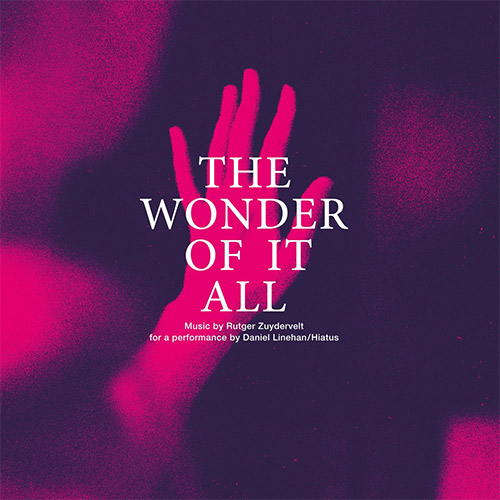



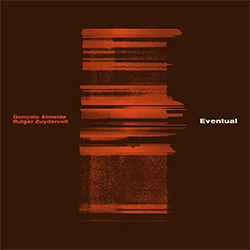

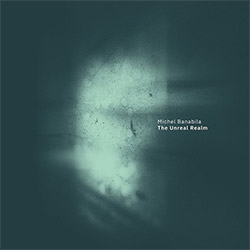
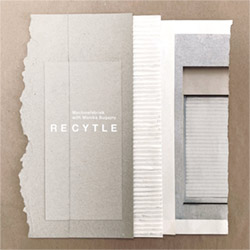

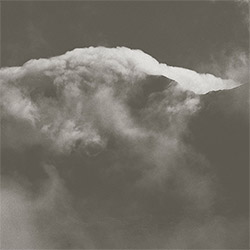
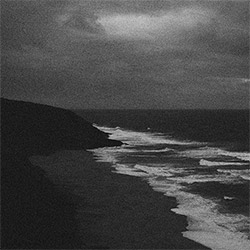

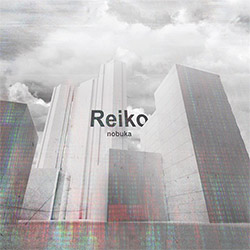
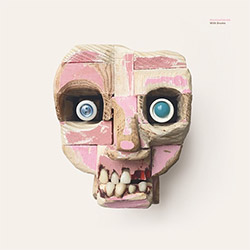


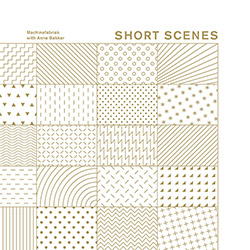
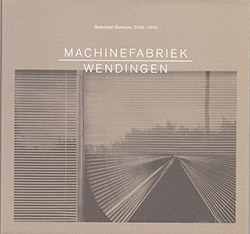

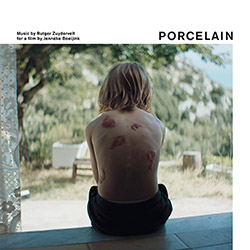
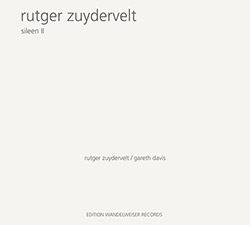
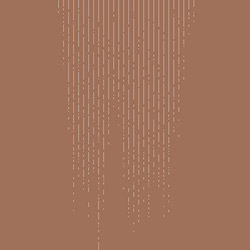
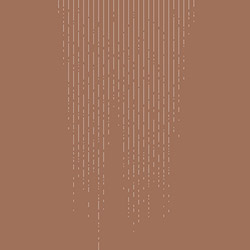
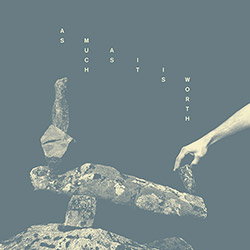
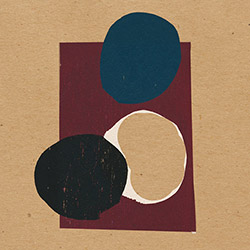
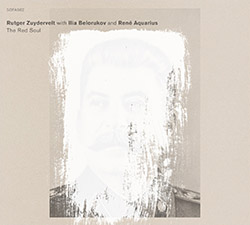
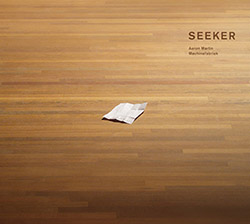





![Jaeger, Kassel: Fernweh [VINYL 2 LPs]](https://www.teuthida.com/productImages/misc4/36541.jpg)

![Sun Ra: Nuits de la Fondation Maeght [4 CD BOX SET]](https://www.teuthida.com/productImages/misc4/36112.jpg)
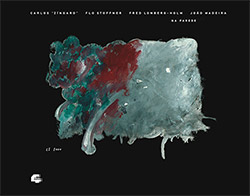


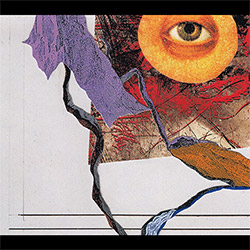

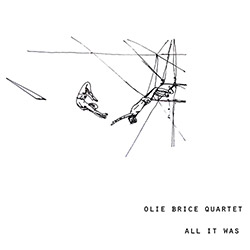
![Musicworks Magazine: #151 Summer 25 [MAGAZINE + CD]](https://www.teuthida.com/productImages/misc4/36559.jpg)

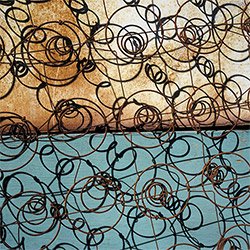
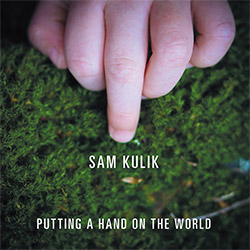





![BlueRing Improvisers: Materia [2 CDs]](https://www.teuthida.com/productImages/misc4/36513.jpg)







![Wheelhouse (Rempis / Adasiewicz / McBride): House And Home [VINYL]](https://www.teuthida.com/productImages/misc4/36462.jpg)

![Parker, Evan / Jean-Marc Foussat: Insolence [VINYL]](https://www.teuthida.com/productImages/misc4/36398.jpg)










![Deupree, Jerome / Sylvie Courvoisier / Lester St. Louis / Joe Morris: Canyon [2 CDs]](https://www.teuthida.com/productImages/misc4/36404.jpg)


![Eventless Plot | Haarvol: The Subliminal Paths [CASSETTE + DOWNLOAD]](https://www.teuthida.com/productImages/misc4/36232.jpg)


![+DOG+: The Light Of Our Lives [2 CDs]](https://www.teuthida.com/productImages/misc4/36009.jpg)


![Eternities: Rides Again [CASSETTE]](https://www.teuthida.com/productImages/misc4/36247.jpg)

![Lopez, Francisco: Untitled (2021-2022) [2 CDs]](https://www.teuthida.com/productImages/misc4/36438.jpg)






![Money : Money 2 [2 CDs]](https://www.teuthida.com/productImages/misc4/35894.jpg)




![Klinga, Erik: Elusive Shimmer [VINYL]](https://www.teuthida.com/productImages/misc4/36258.jpg)
![CHANGES TO blind (Phil Zampino): Volume 9 - I Wave on a Fine Vile Mist [CD + DOWNLOAD]](https://www.teuthida.com/productImages/misc4/36061.jpg)

![Wallmart / Rubbish: Asset Protection [split CD]](https://www.teuthida.com/productImages/misc4/35900.jpg)


![Brown, Dan / Dan Reynolds: Live At The Grange Hall [unauthorized][CASSETTE]](https://www.teuthida.com/productImages/misc4/36245.jpg)








![Palestine, Charlemagne / Seppe Gebruers: Beyondddddd The Notessssss [VINYL]](https://www.teuthida.com/productImages/misc4/36206.jpg)
![Palestine, Charlemagne / Seppe Gebruers: Beyondddddd The Notessssss [NEON GREEN VINYL]](https://www.teuthida.com/productImages/misc4/36207.jpg)

![Laubrock, Ingrid: Purposing The Air [2 CDs]](https://www.teuthida.com/productImages/misc4/35639.jpg)

![Yoko, Ono / The Great Learning Orchestra: Selected Recordings From Grapefruit [2 CDs]](https://www.teuthida.com/productImages/misc4/35841.jpg)









![Zorn, John / JACK Quartet: The Complete String Quartets [2 CDs]](https://www.teuthida.com/productImages/misc4/35609.jpg)

![Lonsdale, Eden: Dawnings [2 CDs]](https://www.teuthida.com/productImages/misc4/35480.jpg)

![Sorry For Laughing (G. Whitlow / M. Bates / Dave-Id / E. Ka-Spel): Rain Flowers [2 CDS]](https://www.teuthida.com/productImages/misc4/35985.jpg)

![Rolando, Tommaso / Andy Moor : Biscotti [CASSETTE w/ DOWNLOADS]](https://www.teuthida.com/productImages/misc4/36106.jpg)


![Electric Bird Noise / Derek Roddy: 8-10-22 [CD EP]](https://www.teuthida.com/productImages/misc4/35970.jpg)








![Elephant9 : Mythical River [VINYL]](https://www.teuthida.com/productImages/misc4/34624.jpg)



![Elephant9 with Terje Rypdal: Catching Fire [VINYL 2 LPs]](https://www.teuthida.com/productImages/misc4/35355.jpg)
![Deerlady (Obomsawin, Mali / Magdalena Abrego): Greatest Hits [VINYL]](https://www.teuthida.com/productImages/misc4/34876.jpg)







![Surplus 1980: Illusion of Consistency [CD]](https://www.teuthida.com/productImages/misc4/35069.jpg)
![Staiano, Moe: Away Towards the Light [VINYL + DOWNLOAD]](https://www.teuthida.com/productImages/misc4/35037.jpg)
![Coley, Byron: Dating Tips for Touring Bands [VINYL]](https://www.teuthida.com/productImages/misc4/17906.jpg)

![Lost Kisses: My Life is Sad & Funny [DVD]](https://www.teuthida.com/productImages/misc4/lostKissesDVD.jpg)